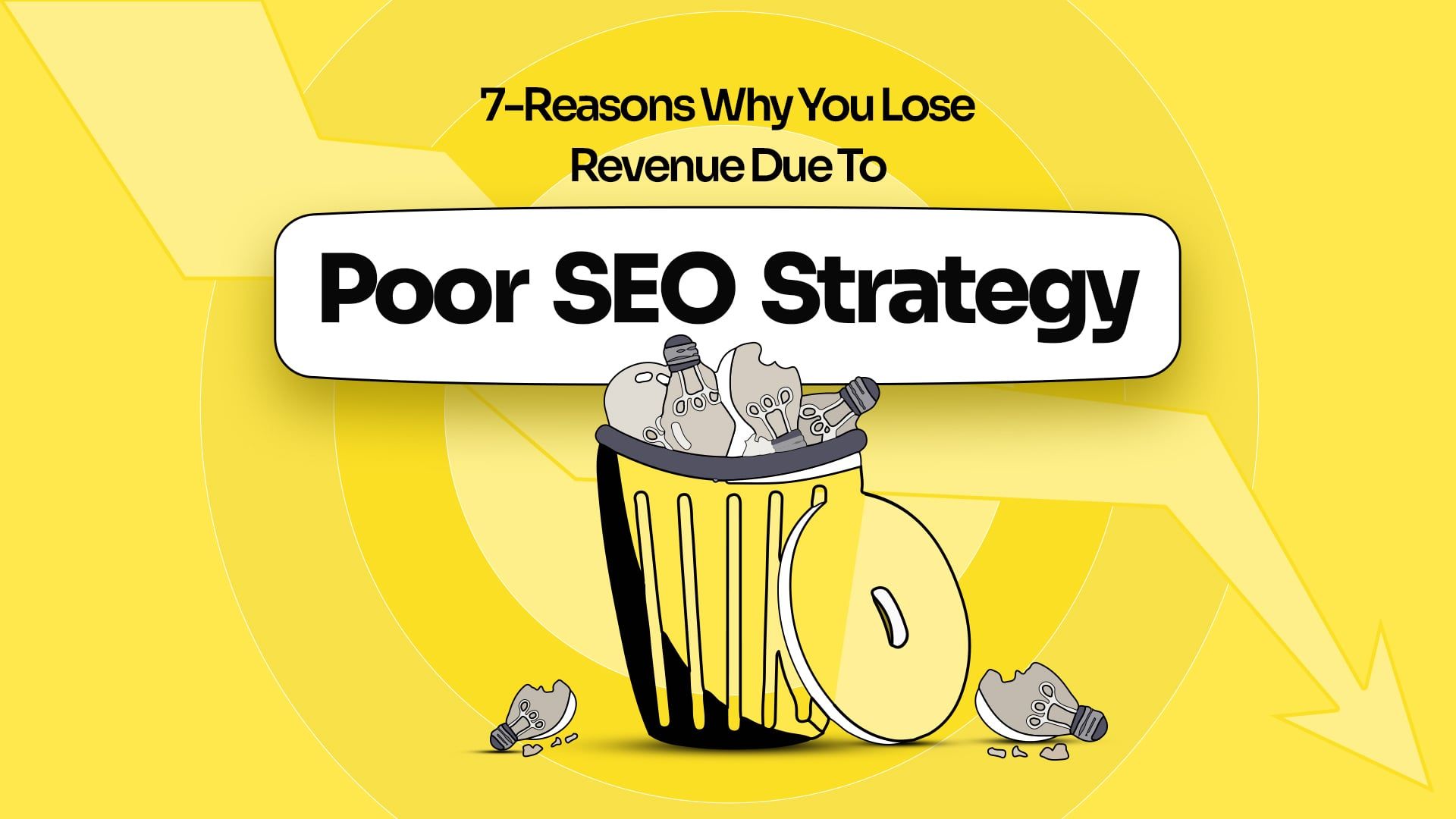
As a business owner, it’s crucial to establish a strong online presence to achieve success. Search engine optimization (SEO) is a powerful tool that can help you achieve this goal. However, it’s essential to implement a sound SEO strategy, as a poorly executed one can lead to revenue loss for your business. In this article, we will explore seven reasons why suboptimal SEO strategies can impact your revenue negatively. To avoid these issues, it’s vital to work with top SEO firms that offer clear SEO packages tailored to your specific needs and help you run your business online.
Neglecting the Power of Keywords (and the Art of Optimization)
Keywords play a crucial role in search engine optimization (SEO), serving as the key link between what users search for and the content on your website. Think of keywords as the guiding stars that help users navigate through the vast expanse of the internet, and your SEO strategy as the compass that ensures your content is on track and headed in the right direction. Effective keyword research and optimization are the building blocks of a successful SEO campaign; ignoring this crucial aspect of SEO is like setting sail without a map, leaving your content adrift and potentially losing valuable customers. In this article, we will take a closer look at why keywords are so crucial to your SEO strategy and how you can leverage them to increase visibility and attract more traffic to your website.
Bridge Between User Intent and Content:
Keywords act as a bridge, connecting users’ intent with your website’s content. Users who type queries into search engines use specific words or phrases that reflect their needs, questions, or interests. A well-crafted keyword strategy ensures that your content is aligned with these user queries, enhancing the chances of your website appearing in relevant search results.
Content Quality:
The adage “Content is king” is not a mere cliché; it’s a fundamental truth in the digital age. Poorly crafted, irrelevant, or duplicated content fails to engage users and undermines your SEO efforts. Search engines prioritize content that is informative, original, and engaging. If your website lacks quality content, it ranks lower in search results and fails to retain visitors. A holistic content strategy that caters to the needs and interests of your target audience is indispensable for SEO success and revenue generation.
The Mobile Revolution:
In an era dominated by smartphones, neglecting mobile optimization is a cardinal sin in SEO. Search engines led by Google now prioritize mobile-friendly websites in their rankings. A poor mobile experience affects your search rankings and alienates a significant portion of your potential audience who prefer browsing on their smartphones or tablets. Embracing a responsive design and ensuring a mobile-friendly user interface is not just a trend; it’s a necessity for a modern and effective SEO strategy.
Technical SEO Neglect:
In the intricate web of search engine optimization (SEO), the user-facing elements of your website are indeed essential, but beneath the surface lies a critical component that often goes unnoticed: technical SEO. Unlike the content and design that users interact with directly, technical SEO influences how search engines crawl, index, and ultimately rank your website. Neglecting technical SEO issues can have profound consequences for your search rankings and, consequently, your online visibility and revenue potential.
The Unseen Engine Room:
Technical SEO can be likened to a ship’s engine room, powering the vessel’s movement without being visible to those on board. Similarly, technical SEO works behind the scenes, ensuring search engines can navigate your website efficiently and effectively.
Impact on Search Rankings:
Ignoring technical SEO issues is akin to sailing a ship with a compromised engine. Issues such as broken links, slow page load times, and improper redirects can significantly impact how search engines perceive and rank your website. Search algorithms consider a site’s overall health and performance, and technical issues send harmful signals, resulting in lower rankings.
Link Building Pitfalls:
Backlinks, the currency of the internet, indicate to search engines that your website is a reputable and reliable source of information. However, not all backlinks are created equal, and a misguided link-building strategy can lead to adverse consequences. Low-quality or spammy backlinks can result in penalties from search engines, plummeting your rankings. Conversely, a well-executed and ethical link-building strategy can significantly enhance your website’s authority, increasing its visibility in search results and boosting revenue.
Failure to Adapt to Algorithmic Shifts:
Search engines constantly evolve algorithms to offer users the most relevant and high-quality content. Businesses that fail to adapt to these shifts risk declining search rankings. Staying informed about algorithm updates and promptly adjusting your SEO strategy is essential for maintaining and improving online visibility. Regularly monitoring industry trends and algorithm changes allows you to adjust your SEO strategy proactively, ensuring long-term success and sustained revenue growth.
Local SEO Neglect:
For businesses with a physical presence, paying attention to local SEO is akin to leaving money on the table. Many consumers rely on search engines to find local products and services, and if your business appears in local search results, you need a substantial market share. Optimizing your website for local search, claiming and updating your Google My Business listing, and encouraging customer reviews are critical to enhancing your local SEO efforts. Local SEO improves your visibility in local searches and establishes trust with potential customers in your vicinity, potentially transforming them into loyal patrons.
In the highly competitive world, a poor SEO strategy is akin to digital marketing, with consequences far beyond diminished search rankings. Businesses can take proactive steps to elevate their SEO strategies by addressing these seven crucial reasons for revenue loss, ensuring visibility, sustained engagement, and conversions. Investing in a robust and comprehensive SEO strategy is not an extravagance; it’s a prerequisite for businesses aspiring to thrive in the digital era. The keys to unlocking the full potential of your online presence lie in understanding these challenges and implementing strategies that address them and propel your brand toward sustained success and revenue growth.

